In the afternoon of May 23, 2023, to celebrate the 118th anniversary of Fudan University, the Institute of International Studies of Fudan University (IIS Fudan) held the 2023 Annual Academic Celebration Event, contributing to the Fudan University 2023 Think Tank Week. Professor Zhao Minghao, Professor Sun Degang, Associate Professor Jian Junbo, Associate Professor Wang Guangtao and Associate Professor Cao Ting delivered keynote speeches. Professor Hu Lingyuan, Director of the Academic Committee of IIS Fudan, presided over the event. Professor Wu Xinbo, Dean of IIS Fudan and Director of the Center for American Studies, Professor Qi Huaigao, Vice Dean of IIS Fudan, and more than 70 Fudan students and faculty members attended the Event.

Zhao Minghao, Professor at the Center for American Studies, Fudan University discussed the issue of US-China technological competition.
Prof. Zhao contended that technological competition was the priority of the Biden Administration. The U.S. was worried about the increasing tech capabilities of China and its consequences. U.S. policy towards China in technology combined technological competition, securitization and political pressure. He said the U.S. had been increasing its R&D investment and adjusting the relevant mechanisms. The American side was adopting the small yard high fence strategy. In addition, the U.S. was building up the democratic technology alliance, which aimed to provide alternatives to Chinese technological products.
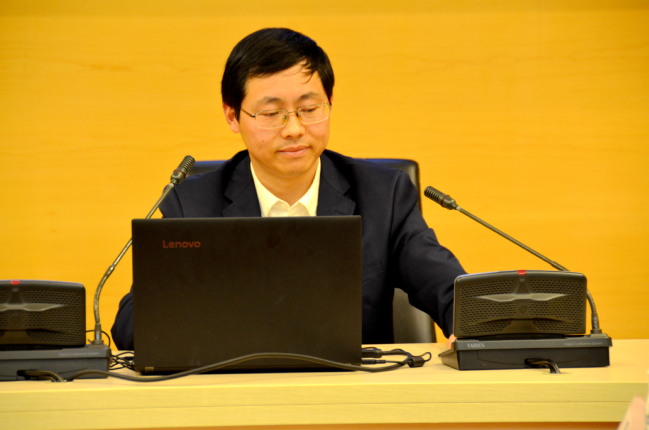
Professor Sun Degang, Director of the Center for Middle Eastern Studies of Fudan University presented his paper titled “The Motivation, Development, and Prospects of the Middle Eastern Reconciliation in the New Era”.
Professor Sun highlighted that since the end of World War II, there had been cycles of conflict and reconciliation in the Middle East. Still, the current Middle East reconciliation was fragile. In the short term, the internal and external contradictions in the area were difficult to eliminate as the “trust deficit” issue was prominent. Iran-Saudi rapprochement might encounter external interference from the US or Israel. Thus, there was still a long way for Middle Eastern countries to transform their “peace deficit” into a “development deficit” and solve the increasingly serious internal problems of debt, unemployment, food security, soaring prices, and high inflation. Middle Eastern countries' “peace and reconciliation wave” might have been interrupted if economic and livelihood issues weren't addressed properly. In the context of transformation, Middle Eastern countries had gone from looking up to the world powers to viewing world powers as equal partners. On the one hand, they would consolidate their cooperation with the US, Europe, and Russia; on the other hand, they would expand cooperation with Asian economies such as China and India. Professor Sun believed scholars should go beyond the old thinking of “the rise of the East and the fall of the West” and the “zero-sum game”. The Middle East had three great-power relations: cooperation, competition and confrontation. The East and West countries had extensive domains for cooperation on climate change, food security, counter-terrorism, non-proliferation, Yemen, Palestine-Israel peace process, Iranian nuclear issue, Syria, Libya and other regional governance agendas.
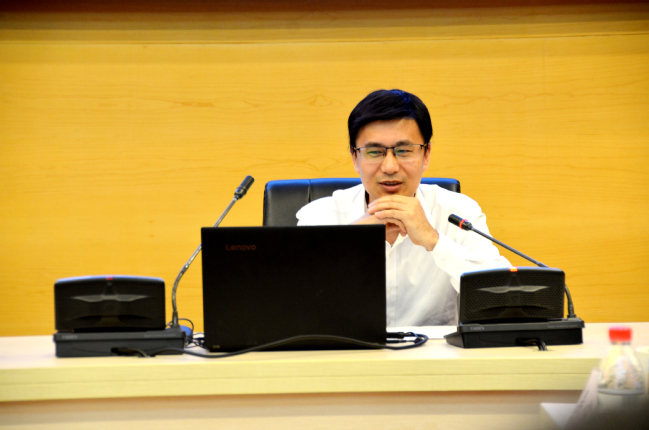
Associate Professor Jian Junbo, Deputy Director of the Centre for China-Europe Relations at Fudan University, lectured China-Europe Relations under the Dilemma of European Integration.
Assoc. Prof. Jian Junbo argued that European integration was facing many difficulties in terms of economy, security, political system and enlargement. In the economic field, it was difficult for members of the EU to shape a shared banking union, especially the fiscal union, since for members, it was hard for them to transfer their sovereignty to Brussels. Regarding defense integration, the biggest challenge was to resolve the relationship between the European independent defense system and NATO. Different members had different positions on this issue. For instance, France advocated that Europe build an independent weapon system, while Germany relied on U.S. weapons. Regarding institutional reform, Germany attempted to reform the EU's decision-making system. German Chancellor Scholtz hoped to promote the transformation of the decision-making system of the European Council from a consensus to a qualified majority voting system. Regarding the enlargement, although there was progress after the Russia-Ukraine conflict, those candidate countries’ accession to the EU couldn’t be anticipated in the long term, and those countries faced enlargement fatigue. The EU's policy towards China would continuously adjust in the context of strategic competition between China and the U.S. It could be even harsher and more hostile towards China in some aspects. De-risking policy in the economic field would attack China-EU economic relations and make the relations more politicized. However, it was believed that in the future, China-Europe relations would continue to develop with various challenges.

Wang Guangtao, Associate Professor of the Center for Japanese Studies, shed light on the latest three trends in Japan's political ecology
Assoc. Prof. Wang Guangtao discussed three trends of Japan's political ecology: right-leaning, populism, and conservativism. The right-leaning trend was reflected in the fact that the Japanese government had strengthened its military and security forces internally and manipulated public opinion to report negatively on China. Externally, it embraced the United States and its allies and sought to contain China in all directions. Populism manifested itself in the fact that Japan's negative public opinion atmosphere toward China was in turn exploited by Japanese political parties and politicians, further deteriorating the atmosphere of public opinion toward China. Conservatism manifested in the fact that politicians, intellectuals and the Japanese people had increasingly negative perceptions of China and were even more negative towards Sino-Japanese non-governmental and cultural exchanges.
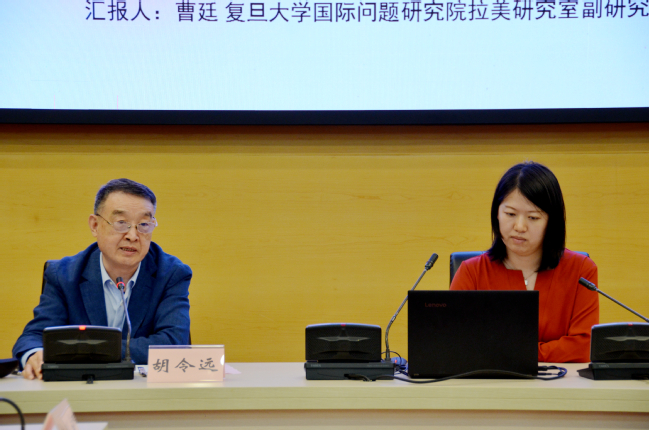
Associate Professor Cao Ting, Deputy Director of the Research Office for Latin American Studies, Fudan University, lectured on New Progress of Sino-Latin American Relations in the Context of China-U.S. Game.
Cao Ting believed the United States was the biggest extraterritorial factor affecting Sino-Latin American relations. The Biden administration considered China its biggest rival in Latin America and had made competition with China one of its Latin American policy priorities. To contain China's influence in Latin America, the Biden government not only smeared the image of China, and continued to compete with China economically in Latin America, but also directly pressured Latin American countries through its cooperation mechanism with Latin America. To enhance Sino-Latin American relations, Cao pointed out that China should attach greater importance to Latin America, strengthen exchanges with Latin American countries, respond to the concerns of Latin American countries, pay more attention to sustainable development cooperation, and coordinate with the United States on relevant issues in the region.

Wen Yao, Assistant Professor of the Center for China’s Relations with Neighboring Countries, exchanged his understanding with the presenters
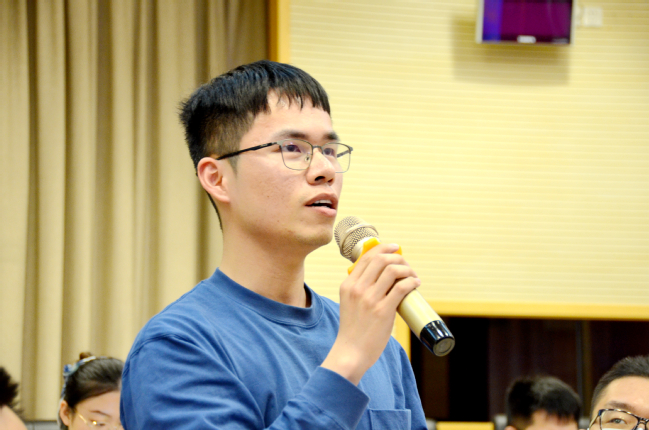
Doctoral Student exchanged with the presenters
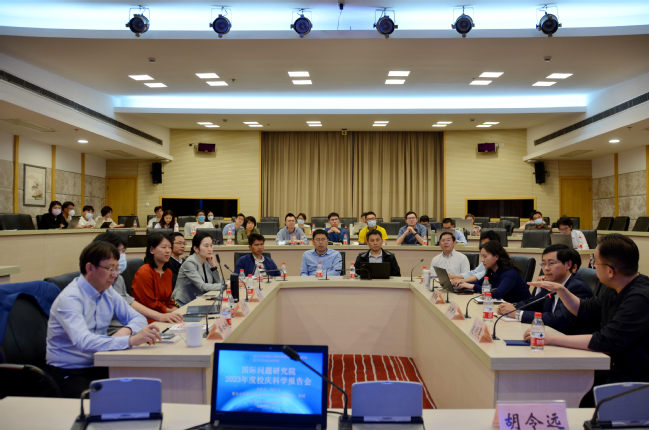
2023 Annual Academic Celebration Event of IIS Fudan
The reports enlightened students and faculty at the event and inspired their in-depth exchanges with the presenters, ranging from internal tensions between the U.S. and its allies in science and technology, the role of America in the Middle East conflict and reconciliation, the interaction between Japanese politicians and the public to China and Latin America multilateral cooperation.






